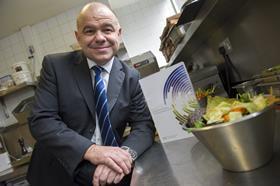
A comprehensive guide to how the UK can prevent any food waste reaching landfill sites by 2020 was launched yesterday.
The report, entitled ‘Vision 2020: UK roadmap to Zero Food Waste to Landfill’, highlights food waste at every point in the supply chain and clearly identifies where more work can be done to reduce waste.
It was produced by renewable waste company ReFood and supported by charity BioRegional.
One of its recommendations includes compulsory collections of food waste from homes and businesses. It also advocates a phased introduction to a total ban on food waste to landfill by 2020, to allow time for the food industry to prepare and the waste industry to invest.
Philip Simpson, commercial director at ReFood, said 40 per cent of the 14.8 tonnes of food waste produced by the total supply chain in the UK goes to landfill. Methane produced by landfills has 21 times more impact than carbon dioxide.
He said: “We need to harnass food waste to address the pressure on global food production. We need to turn food waste into food resource. It makes economic as well as environmental sense.”
The report also advocates a waste hierarchy model, which begins by reducing waste, before sending excess food to people in need and then to livestock. The next stage is sending waste to anaerobic digestion (AD) plants, which use bacteria to break down waste and produce methane. This methane is stored and used to power engines and inject energy to the grid. Excess liquid produced by the AD plant can be used as plant fertiliser to create a total renewable energy cycle.
ReFood offers waste collection and AD renewable energy service. Simpson said bins are provided free of charge and there are no start-up costs. There is an uplift charge per bin, but unfilled bins are not charged.
Speaking at the event was sustainability manager at The Savoy, Debra Patterson, who said that the hotel has achieved 100 per cent diversion of food waste from landfill, with a saving of around £200 a week.
Patterson said: “We have found a completely sustainable solution and believe it sets an example of how to address the issue of food waste proactively. We fully welcome Vision 2020 as recycling food waste the right way actually saves money.”
Head of sustainable business at BioRegional Hayley Baines-Buffery said it is unequivocal that reducing waste will strengthen the economy.
As an example of how an AD plant can help the horticulture industry in particular, she said the phosphate supply, used to feed plants, is due to peak in 2030 just at the time when food production needs to double. She said the AD system allows phosphates to be re-used in soils.
“We need a transformative shift in the way we manage our food supply,” she said.
She added: “The AD system is classified as a renewable source of energy so it’s eligible for renewable incentives.”
The report is the culmination of two years' work by a ‘visionary panel’ brought together by ReFood in 2011, including Wrap, the Institute of Hospitality, Unilever and the London Thames Gateway Development Partnership. The panel was chaired by former environment secretary of state Lord Deben.



